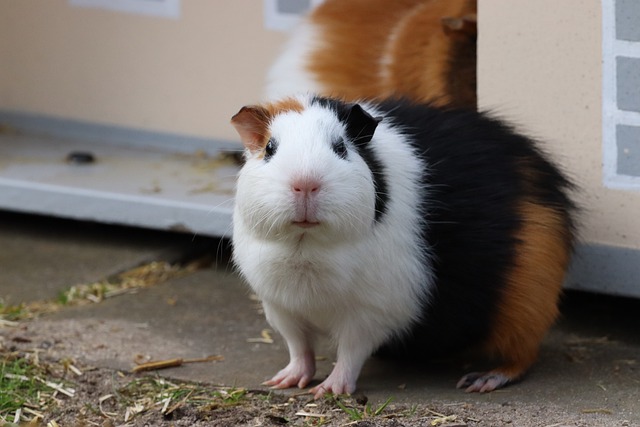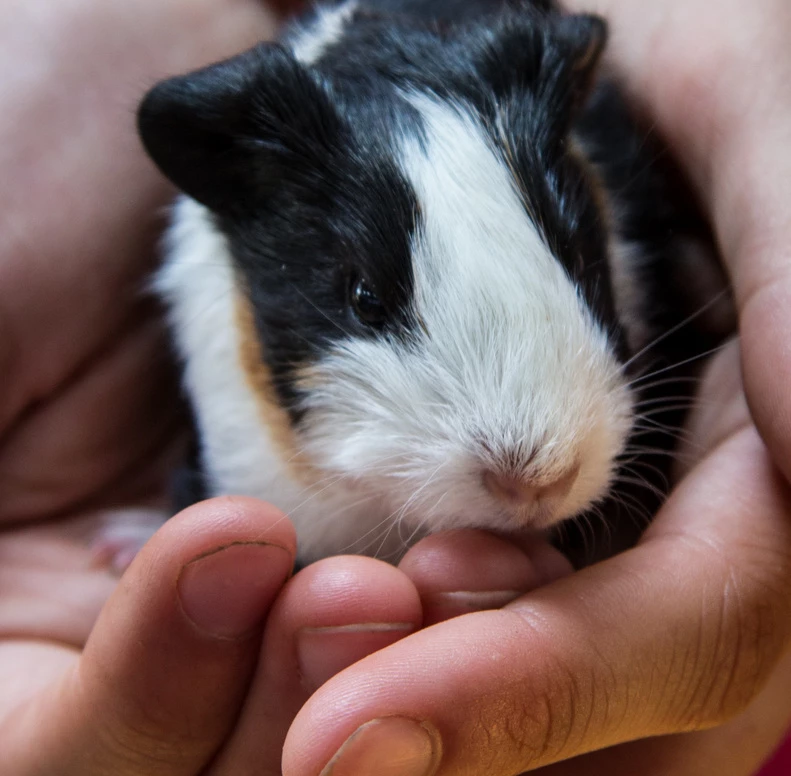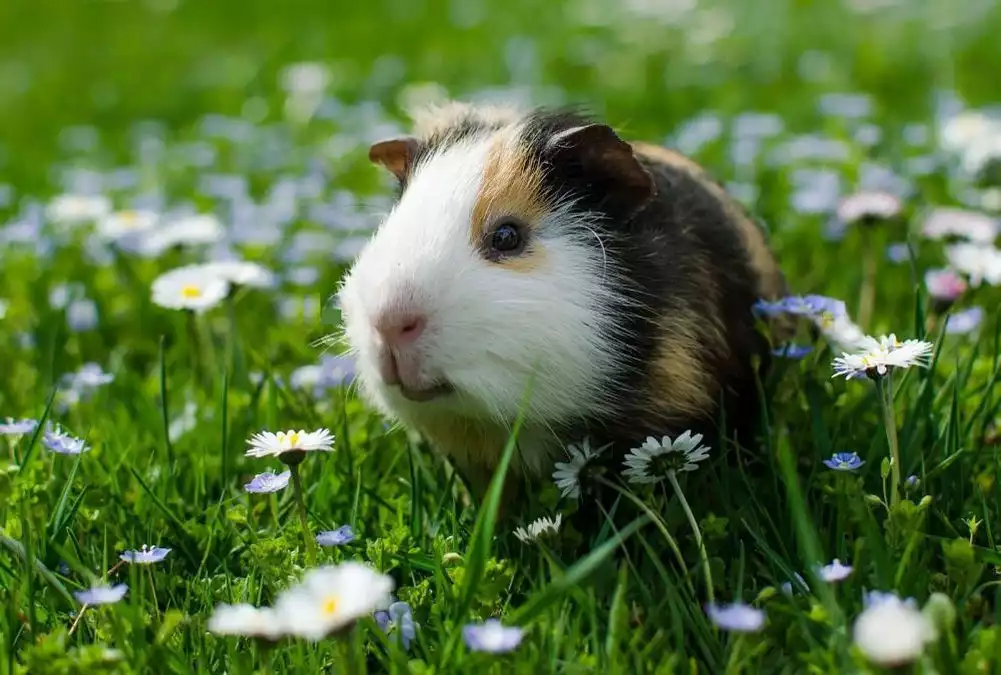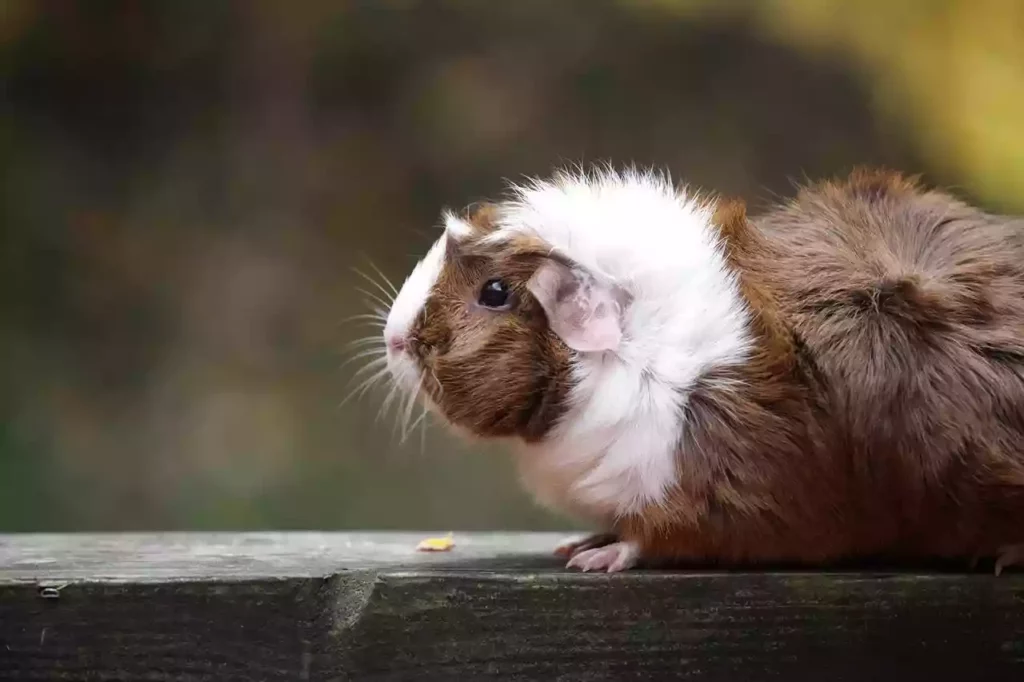How do I make my guinea pig not scared of me? Give your guinea pig plenty of space to prevent it from becoming afraid of you. Generally, guinea pigs are shy creatures who react positively in their territory. It is essential for your pet to feel safe, so don’t pick it up or feed it – if it is hungry, it will eat when it is ready. Another option would be to give it a new hiding place it has never seen before.
Following your guinea pig around with a camera or video recorder is another way to create a strong bond with them. Those animals are naturally curious, so they will sniff the camera before realizing it’s harmless. Bringing something familiar to their cage will make them feel more comfortable, so bring the same toy or blanket into the cell every time you visit.
It is essential that when you pick up your guinea pig for extra cuddles, you hold them correctly – squeezing can cause stress and anxiety for your pet. If you keep your guinea pig close to your body, he won’t struggle as much when you pick him up. Guinea pigs can be poor maintenance and are great fun to have around.
To improve your relationship with any animal, you must put in some effort initially. If your guinea pig is a new family member or has not yet bonded with you, it is essential to form a good relationship with him.
Trust plays a significant role in the relationship between a pet and a human. You can gain the confidence of your guinea pig by taking several steps.
If you follow these three steps, you can shorten the issue; Bonding With Your Guinea Pig, Caring for Your Guinea Pig, and Appreciating Your Guinea Pig. As of now, we have covered most of your doubts. Scroll below if you want to read more interesting articles
Here are a few simple steps that you can follow to make your guinea pigs not scared of you:
Bonding With Your Guinea Pig
Table of Contents
1. One of the best ways to earn your guinea pig’s trust is to feed him healthy foods. Occasionally hand-feed veggies and fruits along with hay and pellets. If you do this regularly, your guinea pig will associate you and your scent with its favorite foods.
You can give your guinea pig fruit and sweeter vegetables as snacks. You could feed him a slice of banana or apple once a day or a piece of bell pepper.
Guinea pigs do have specific food preferences like humans. Try different types of fruit and vegetables until you find one that makes your pet happiest. All should be fed with your hands. Providing food and attention at regular intervals will help your guinea pig identify you correctly.
2. Make sure you hold your guinea pig properly: You will want to give it much attention, so you should feel comfortable having it. You’ll want to give your guinea pig plenty of attention, which means you should be comfortable holding him.
It is best to keep him gently but firmly. One hand should be under his belly, and one hand should support his bottom. You should maintain a close grip on him, especially when moving around. Making your guinea pig feel secure while you hold them is crucial.
You will have difficulty getting him to trust you if he is scared of falling. Secure him, but keep him loose enough that he will feel comfortable. It involves supporting his rump to eliminate the ‘falling’ sensation.
3. Spend some quality time with your Guinea Pig: To provide good care to your guinea pig, you need to be in the same room with them while in their cage. Please spend time with your guinea pig by removing them from their confined area to effectively bond with them. Allow your guinea pig to move around freely each day while you take some time to pay attention to him.
Guinea pigs like to play, hide and seek. If you are playing with your pig outside the cage, surround the room with several empty paper sacks. Stuff some treats into the pockets and allow them to explore! Make sure you watch your pet closely when they’re running around.
Guinea pigs can easily find several good hiding places, so you do not want to lose them. Treat your guinea pig to a small treat every time you approach them for playtime. As a result, they will associate time with you with positive rewards.
4. Communicate with them: Communicating with your pet is a great way to strengthen your bond. Guinea pigs are social animals, and they enjoy being pampered. Put the cage in a room where you spend a lot of time, maybe your home office or living room.
Keep in touch with your guinea pig throughout the day. At first, it may seem strange, but you’ll probably come to enjoy having someone to talk to who won’t disagree with your views. A Guinea pig is an excellent listener!
Call your guinea pig frequently by its name. Your pet will learn to respond by using their name when you specifically talk to them. This special attention will become a habit for them.
5. Discover guinea pig behavior: Please spend some time learning about the characteristics of guinea pigs so you can earn their trust. Typically, they are intelligent, sensitive, and energetic. Please make sure you pay attention to your little guinea’s habits so that you can figure out their interests.
You will gain their trust more quickly if you learn what spots they prefer to be scratched. Guinea pigs are incredibly social animals and enjoy the company. It may be a good idea to get a companion for your pet. In terms of care, there is no difference between two and one guinea pig.
Additionally, it may be easier for them when you cannot constantly attend to their needs for attention and socialization. You shouldn’t worry if your guinea pig does not immediately respond to your affections. The guinea pig can be challenging to trust at first, just like any other animal.
Caring for Your Guinea Pig
1. You must be prepared before bringing your pet home: Ensure you have everything you need before getting your guinea pig to your house for the first time. Ensure they have a comfortable living space. It would help if you also kept a lot of treats on hand.
A good water bottle is one of the essential items for your new pet. Ask the veterinarian for recommendations. Provide your guinea pig with a clean, fresh water bottle with no leakage.
2. Provide a pleasant and safe environment: Try to provide them with a cage with enough space, at least 7.5 to 8 square feet. You can make your cage if you can’t find one that suits your needs. Ensure that Guinea pigs have all the materials they need to burrow and nest.
Even though pine and cedar shavings are widely sold, their chemicals are not suitable for small animals. Use a paper-based bedding product instead, or use fleece layered beneath an absorbent liner.
3. The best food for a guinea pig is grass or good quality hay: This should be the essential part of its diet. Also, you can provide a small amount of high-quality extruded food. Those pellets are milled so that every nugget appears identical, making it impossible for the guinea pig to pick and choose which parts of the ammunition to eat.
If the diet consists exclusively of pellets, the guinea pig will become obese or develop excessive tooth growth. Your guinea pig should eat a few servings of fruits and vegetables daily. As Guinea pigs cannot produce Vitamin C, it must be added to their diet, as pellets are not enough.
Several vegetables are safe for pigs, including romaine lettuce, kale, celery, carrots, parsley, and spinach. You should know that different vegetables have different limitations regarding how much they can be fed each week.
For example, fruits are sugary but can feed your guinea once a week as a treat. You can try many fruits, including blueberries, apples, blackberries, oranges, raspberries, peaches, cherries, and bananas.

How do I make my guinea pig not scared of me?
You can also find more safe fruits and vegetables online. If possible, feed organic, and wash your vegetables and fruits thoroughly with water before feeding. Ensure any leftover food is removed after 4 hours to avoid bacterial growth.
4. Make sure your guinea pig is cleaned: It is generally possible for your guinea pig to bathe itself. But you should cleanse it every three months as well. Take a scoop of room temperature water and apply it to the guinea pig.
You can use a small amount of shampoo to lather up your guinea pig’s fur. You should rinse it thoroughly but gently afterward. Make sure you bathe only your guinea pig’s body, not its head. You don’t want to splash water in its eyes. Then, dry your guinea pig with a cleaned soft towel.
5. Ensure that your guinea pig is healthy: You should take your guinea pig to the vet every year. Make sure that he has a healthy weight and isn’t displaying any symptoms of illness by consulting your veterinarian. Ask your vet all the questions you need to answer patiently and thoroughly.
It will help if you take your guinea pig to the vet whenever they show signs of illness or behavior changes. Ensure that you include the financial costs of owning a guinea pig in your budget before buying one.
In addition to food, bedding, and a water bottle, you will need to purchase a cage. You will also need to take your pet to the vet occasionally. A guinea pig’s annual care costs approximately $500 and $700.
Appreciating Your Pet
1. Make him feel valued: Animals are capable of reading moods. It would help if you reciprocated to get your guinea pig to respect and trust you. Don’t forget to think about how having a pet enhances your life. Isn’t it nice to have some company when no one else is around? Your guinea pig will display more appreciation the more you value it.
2. Involve your kids in caring for the guinea pig: Pets are a great way to teach your children responsibility. For your children, guinea pigs make an ideal first pet. You should conduct your kids how to feed and clean the guinea pig and let them help you. This arrangement will benefit your children as well as your guinea pig.
3. Maintain good health: According to some studies, pet owners tend to be healthier than non-pet owners. The benefits of owning a guinea pig are the same as owning a cat. Owning a guinea pig can reduce your blood pressure and prevent symptoms of depression.





